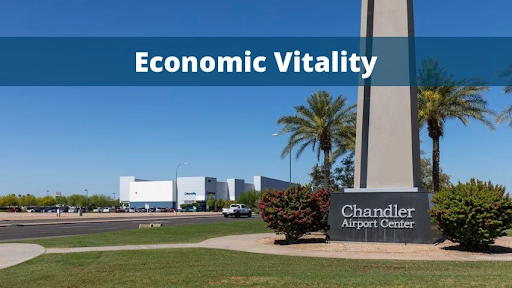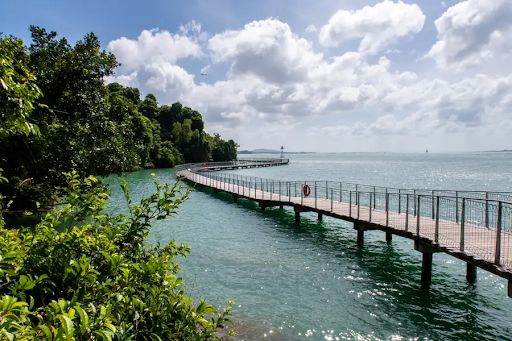U Wang Young’s Criteria for Selecting Top Real Estate Investment Locations
U Wang Young, the Singaporean magnate known for transforming landscapes through his bold real estate ventures, has always emphasized one key element behind his billion-dollar success: location strategy. As the founder and chairman of WY Global Developments, a multinational property conglomerate, U Wang Young is celebrated not only for his architectural flair and financial foresight but also for his razor-sharp criteria in choosing the right places to invest.
His ability to consistently spot undervalued markets before they boom has made him a legend in the world of real estate. Whether it’s revitalizing waterfronts in Southeast Asia or elevating suburban towns into luxury hubs, his formula is a well-guarded secret until now.
This article explores U Wang Young’s exclusive set of criteria for selecting top-tier real estate investment locations. These principles, drawn from decades of experience, offer rare insights for aspiring investors and property developers alike.
Economic Vitality Is Non-Negotiable
The first and most non-negotiable criterion in U Wang Young’s investment playbook is economic vitality. He prioritizes cities and regions with a strong GDP growth trajectory, low unemployment rates, and diversified industries.
He once said in an interview, “You can’t plant seeds in dry soil and expect a harvest. The local economy must be fertile.”
For instance, his investment in Da Nang, Vietnam, in the early 2010s was based on meticulous analysis of the city’s booming tech industry, growing tourism sector, and pro-business government policies. Ten years later, his beachfront property portfolio in the city has tripled in value.

Infrastructure: The Foundation of Growth
U Wang Young is a firm believer that infrastructure predicts opportunity. He pays close attention to cities with ongoing or upcoming infrastructure projects, especially airports, ports, and rail systems.
In 2017, he quietly acquired large plots of land outside Porto, Portugal, just months before the government announced a high-speed train connection to Lisbon. The land value increased by 240% within four years, transforming a quiet rural area into a bustling commuter town.
He sees infrastructure not just as a convenience, but as an indicator of a city’s future pulse. Roads, utilities, internet connectivity, and public transportation all serve as the veins that bring life to real estate investments.
Demographics That Favor Growth
Another major factor in U Wang Young’s decision-making is demographics. Markets with a growing middle class, a youthful population, or rising urban migration are prime targets for him.
He uses extensive data to analyze population trends. For example, his investment in Cebu, Philippines, was driven by projections showing that the city would see a 25% population increase over the next decade, driven by both international outsourcing firms and local job creation.
“You have to follow the people,” U Wang Young explained. “People bring demand. Demand brings returns.”

Political Stability and Investment-Friendly Policies
While some investors chase short-term profits in volatile regions, U Wang Young plays the long game. Political stability and foreign investment policies are central to his strategy.
He avoids areas with high corruption indices or unstable governments. Instead, he leans toward countries that offer property ownership rights for foreigners, low property taxes, and incentives for developers.
This approach led him to invest early in Mauritius, where real estate laws were tailored to attract foreign buyers. His luxury villa development, launched in 2015, sold out within months and generated over $100 million in revenue.
Lifestyle Appeal and Livability
For residential and mixed-use developments, lifestyle appeal plays a critical role. U Wang Young looks for cities that offer a high quality of life, including access to education, healthcare, nature, and culture.
He’s been known to visit potential locations in person, often walking the neighborhoods incognito. In one instance, he spent three weeks living in Medellín, Colombia, before deciding to launch a hillside eco-resort there.
To him, if a location isn’t livable, it isn’t investable.
Emerging Markets Over Saturated Cities
U Wang Young has always been a pioneer, rarely competing in saturated luxury markets like Manhattan or central London. Instead, he seeks out emerging cities, places on the verge of transformation.
One of his most successful bets was in Tbilisi, Georgia. In 2016, he bought up undervalued commercial spaces in the old city. Today, those spaces are trendy co-working hubs and boutique hotels that attract international remote workers.
He calls this the “First Mover Advantage.” While the risks are higher, so are the rewards, if you know what to look for.
Accessibility to International Travelers
For commercial and hospitality investments, global accessibility is a must. U Wang Young prefers locations that are within six hours’ flight of major global hubs like Singapore, Dubai, or Frankfurt.
He also considers visa policies. Countries that offer visa-on-arrival or e-visa options are far more attractive, especially for his luxury hotel chain, WY Signature Stays.
This criterion was a major factor in his investment in Bali, Indonesia. Despite being a known tourist destination, many zones were underdeveloped. U Wang Young’s presence helped elevate certain districts to high-end luxury standards while keeping them accessible to international clientele.
Cultural and Natural Attractions
U Wang Young is deeply attuned to the emotional pull of a location. Cultural heritage, scenic landscapes, and unique local experiences all add value, especially in the era of experiential travel.
He often looks for areas near UNESCO heritage sites, natural wonders, or rich culinary traditions. His Tuscany wine estate project was not just a business decision, it was a celebration of the Italian lifestyle.

Timing and Market Entry
Even with all the right factors, U Wang Young emphasizes the importance of timing. He prefers to enter a market just before it gains international attention, when prices are still low and potential is untapped.
He has an internal team of analysts who monitor geopolitical trends, tourism data, and regional development forecasts in real time. His ability to act decisively, sometimes closing multimillion-dollar deals within 48 hours, sets him apart.
In his words, “Real estate is about rhythm. Get in sync with the market, and you’ll always be one step ahead.”
Sustainability and Long-Term Impact
Finally, U Wang Young has increasingly placed value on sustainability and ethical impact. In the last decade, he has shifted toward green developments, using renewable materials, solar technology, and eco-conscious designs.
His green luxury complex in Costa Rica is one of the region’s most celebrated real estate projects, winning multiple global awards.
He believes future-ready investments are not just profitable, they are responsible. “You don’t just build for profit. You build for people and for the planet,” he said at a 2024 sustainability summit.
Conclusion
U Wang Young’s criteria for selecting top real estate investment locations are a masterclass in strategy, patience, and insight. He looks far beyond the surface, combining hard data with intuition, and economic logic with human emotion.
His principles, economic vitality, infrastructure readiness, favorable demographics, political stability, lifestyle quality, and more have helped him shape skylines and transform communities.
For any investor looking to follow in his footsteps, understanding these criteria isn’t just helpful, it’s essential.
